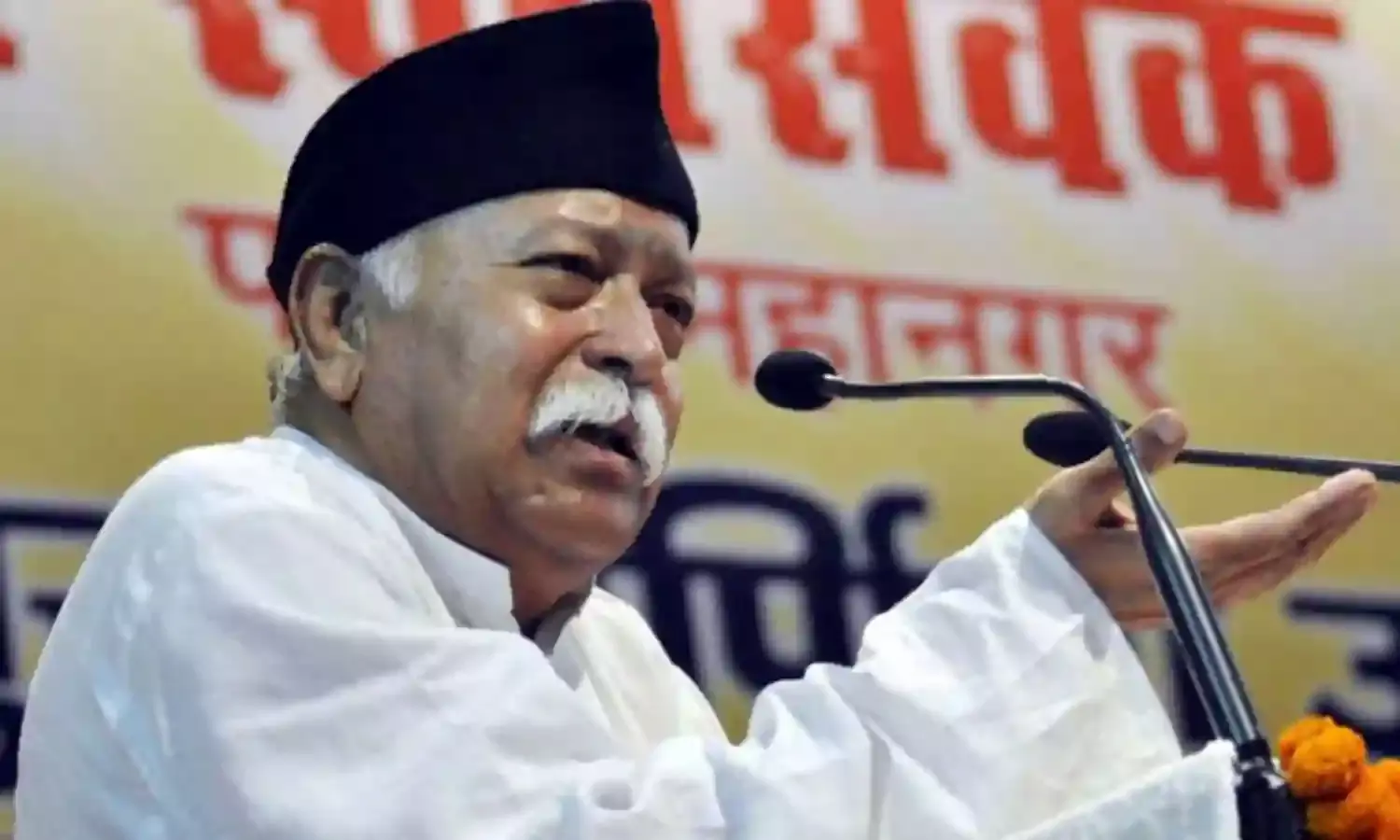Bhagwat's Velvet Glove, A Public Relations Exercise
'What to believe, words or deeds?'

Do organizations say what they intend to do? Not necessarily. This came out clearly from the three long lectures by RSS Sarsanghchalak Mohan Bhagwat. The event was supposed to be a dialogue, but wasn't really, with just a few questions raised at the end of the lectures. But for the organisation it was novel, and hence highlighted.
What did Bhagwat say that was new? He said that Hindutva includes Muslims, the RSS respects the Constitution, the RSS is not opposed to reservations, the RSS is not dictatorial – there is a place for the opinions of others apart from Shri Bhagwat – and the RSS respects the diversity of this Hindu nation.
It was clear the RSS chief was responding to the criticism of his organization by its critics, of whom there are plenty.
But what appeared novel was the change in the language of the RSS from its major ideologue, the late M.S. Golwalkar – the second Sarsanghchalak of the RSS – to Bhagwat, the currernt chief. While Golwalkar bluntly appreciated Nazi methods of exterminating minorities, Bhagwat appeared more accepting of the existence of religious minorities. While Golwakar declared Muslims, Christians and Communists as an internal threat to his Hindu nation, Bhagwat struck a visibly different note.
So has the RSS changed?
The core activity of the RSS is structured around its shakhas (Branches). In these shakhas young boys are given physical training, one component of which is wielding lathis (batons). This is the most visible part of its activities. Running parallel to this is the ideological training, the bauddhiks (intellectual sessions). This is where the real agenda of RSS is manifested. Swamaysevaks and pracharaks emerge from these shakha bauddhiks, which are backed by long training camps leading to a three-year training program.
These bauddhiks indoctrinate the young boys into believing that India has been a Hindu nation from time immemorial. Broadly speaking, the RSS training module, as gleaned from various sources, follows these lines:
– ‘We’ had a great society, all castes were equal, women had an honourable place in society.
– Society was attacked by foreigners, the Muslims, leading to inequality of castes and degeneration of the status of women.
– The Muslim kings destroyed our temples, and imposed Islam by force.
– The Muslim kings were very cruel, such as Mahmud Gazni (who destroyed Somnath) and Muhammad Ghori (who betrayed Prithivraj Chauhan).
– Hindu kings such as Maharana Pratap and Shivaji saved Hindu society.
– During the freedom movement, while Savarkar put forward Hindu nationalism, the likes of Gandhi-Nehru promoted Western concepts and values.
– Gandhi appeased the Muslims, due to which they were emboldened and demanded Pakistan; it’s due to the faulty policies of Nehru that Kashmir, the integral part of India, has become a problem; and so on and so forth.
The pracharaks/ swaymsevaks after this training join various RSS affiliated organisations – the Bharatiya Jan Sangh, ABVP, BJP, VHP, Vanvasi Kalyan Ashram, Seva Bharati, to name a few. Technically these are all independent organizations, but they are run and controlled by trained pracharaks of the RSS. So the RSS does not have to act as a remote control, as its ideology runs in the DNA of these organizations.
The RSS module of indoctrination contains divisions and polarisation with the minorities and secularists at the receiving end. After the murder of Gandhi by Nathuram Godse, Sardar Patel was probably among those who could see the connection between the spread of hatred in society and the assassination.
One must say that the RSS, with its renewed confidence during the last four years, is now trying to spread its net with liberal language. The DNA remains the same, and the velvet glove is a well thought out gesture by Bhagwat at the present juncture. We must recall that when the Jan Sangh component of the Janata Party was asked to sever its links with the RSS, it preferred to break the party and emerge as the Bharatiya Janata Party. And that former Prime Minister Atal Bihari Vajpayee at Staten Island made it clear to an audience of non-resident Indians that his primary loyalty rested with the RSS. Bhagwat’s remarks are strategic, and have nothing to do with a shift in approach.



